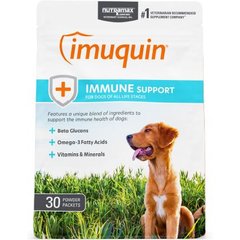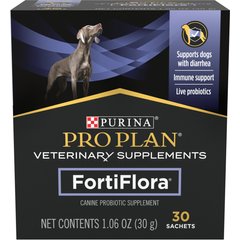Why Your Dog Farts and What to Do About It
Ekaterina Kobalnova/iStock / Getty Images Plus via Getty Images
Dog farting can be an unpleasant part of being a pet parent—the gaseous odors that emanate from your pup can be surprising and overbearing.
In most cases, dog farting is harmless. However, excessive gas in dogs can be indicative of an underlying health condition that needs to be treated.
Let’s look at everything you need to know about dog farting.
Why Do Dogs Fart?
Dog farting can be caused by a variety of reasons. From their diet to health issues, here’s a breakdown of a few of the more common reasons for gas in dogs.
Your Dog’s Diet
What your dog eats can play a huge role in how their digestive tract functions. Here’s a list of the most common dietary culprits of bad gas in dogs:
-
Foods that are difficult to digest (soybeans, beans, etc.):
-
High-fat diets
-
Spices
-
High-fiber foods
Bacterial fermentation of nutrients, as in humans, does sometimes result in the noxious gases that escape from time to time.
Swallowed Air
You may be surprised to find that the source of most gas in dogs comes simply from swallowing too much air.
How do dogs swallow too much air, though?
One of the causes is gobbling food, which may have to do with competing with another animal for food and then eating too quickly.
A respiratory disease that causes an increased respiratory rate might be the problem, or feeding shortly after exercise before your dog has had an opportunity to slow their breathing.
Gastrointestinal Disease
Disease may also play a part in causing a dog to fart a lot, such as acute and chronic intestinal ailments.
When gastrointestinal disease is the cause, there are usually other symptoms, such as diarrhea and vomiting. Your dog may also suffer from a loss of appetite and weight.
Inflammatory bowel disease (IBD) is a possibility, as is bacterial overgrowth in the small intestine. Neoplasia, cancer of the bowel, may also be a cause.
Some other diseases that may cause excessive flatulence are food sensitivities/allergies, parasites, an inflammation of the intestine caused by a virus, or a failure of the pancreas to function normally.
Breeds that have short heads—brachycephalic breeds—also tend to swallow a lot of air because of the positioning of their noses.
Panting heavily, such as after playing or running, can also cause pups to swallow excess air.
Vet Recommended Health Support
- Nutramax Imuquin Immune Support Powder Immune Supplement for Dogs, 30 count$24.99Chewy Price
- Purina Pro Plan Veterinary Diets FortiFlora Powder Probiotic Digestive Supplement for Dogs, 30 count$30.99Chewy Price
- Purina Pro Plan Adult Sensitive Skin & Stomach Salmon & Rice Formula Dry Dog Food, 16-lb bag$54.48Chewy Price
- Virbac Epi-Otic Advanced Ear Cleaner for Dogs & Cats, 4-fl oz bottle$12.34Chewy Price
Why Do Dog Farts Smell So Bad?
The gas produced by your dog can vary dramatically from nearly silent and odorless to loud and foul smelling.
If your dog has a dietary intolerance (such as to lactose), the food may be fermented by bacteria in the gut, which also triggers a foul odor.
There are several reasons for this, but usually is caused by either diet, or metabolism.
High-fiber foods take longer to digest, which then results in stronger smelling flatulence. Some foods will contain sulfur, which result in gas that smells like rotten eggs.
If your dog has a dietary intolerance (such as to lactose), the food may be fermented by bacteria in the gut, which also triggers a foul odor.
Similarly, bacterial infections and inflammation in the intestinal tract can result in excessive smell.
Anything that moves food too slowly or too quickly through the intestinal tract will result in gas that has a strong odor.
When To Go to Your Vet
Some gas is normal in dogs, so the occasional smelly fart isn’t anything to be overly concerned about.
However, if your dog has smelly gas and/or belly gurgling several times a week, or gas combined with vomiting, diarrhea, and loss of weight or appetite, then it’s time to discuss possible causes with your veterinarian.
You should also seek medical advice from your veterinarian if dog farting is accompanied by:
-
Vomiting
-
Diarrhea
What Can I Give My Dog for Gas Relief?
Examining your dog’s diet and ruling out actual disease are the first steps in addressing flatulence. There are medications that can help if you feel that the problem is great enough to justify it.
Speak to your veterinarian for medication recommendations specific to your pup.
How to Prevent Dog Farting
Dog farting can be unpleasant for everyone. A few tips for helping to minimize your dog’s gas include:
-
Feed smaller meals more frequently.
-
Feed meals in a quiet, isolated, noncompetitive environment.
-
Make certain your dog’s diet is highly digestible—consider a GI-friendly dog food.
-
Limit treats to those specifically made for dogs and that are low in fiber.
-
Consider changing your pup's source of protein and carbohydrates. You should do this slowly, under the guidance of a veterinarian, as acute diet changes can lead to more of an upset stomach.
Finally, be cautious about where your dog has access to food. Put secure covers on garbage cans and don't let your dog roam into the neighbors’ yards or into garages where trash might be stored.




